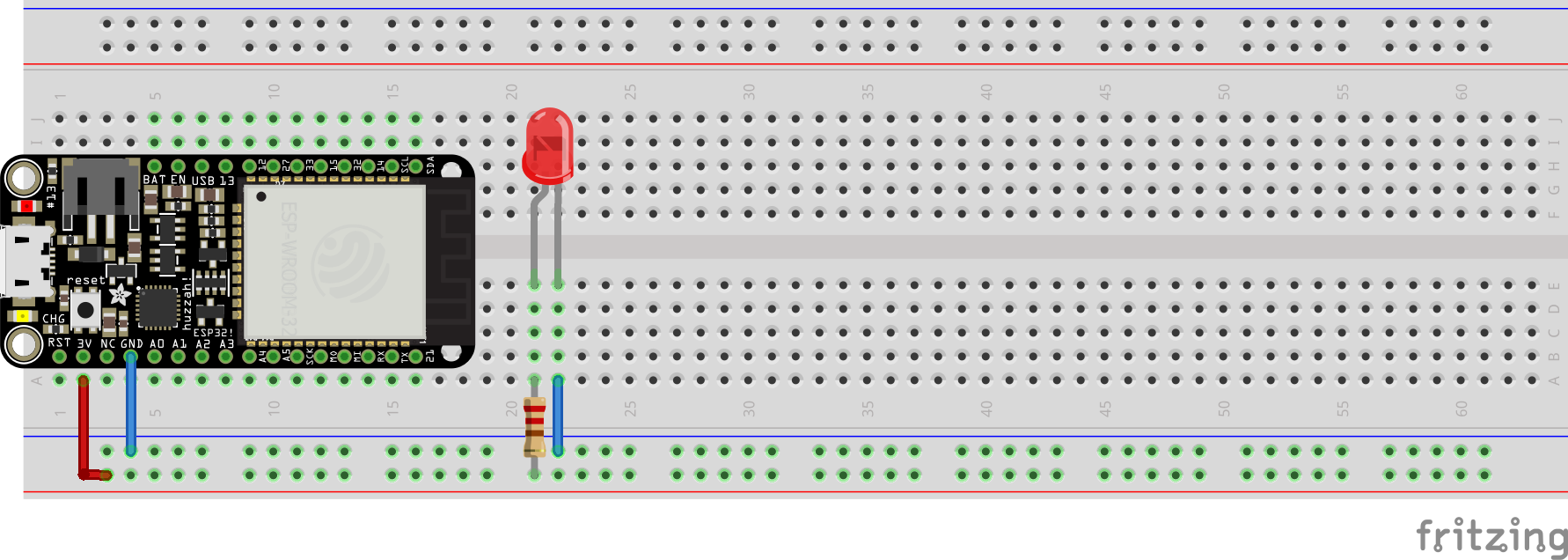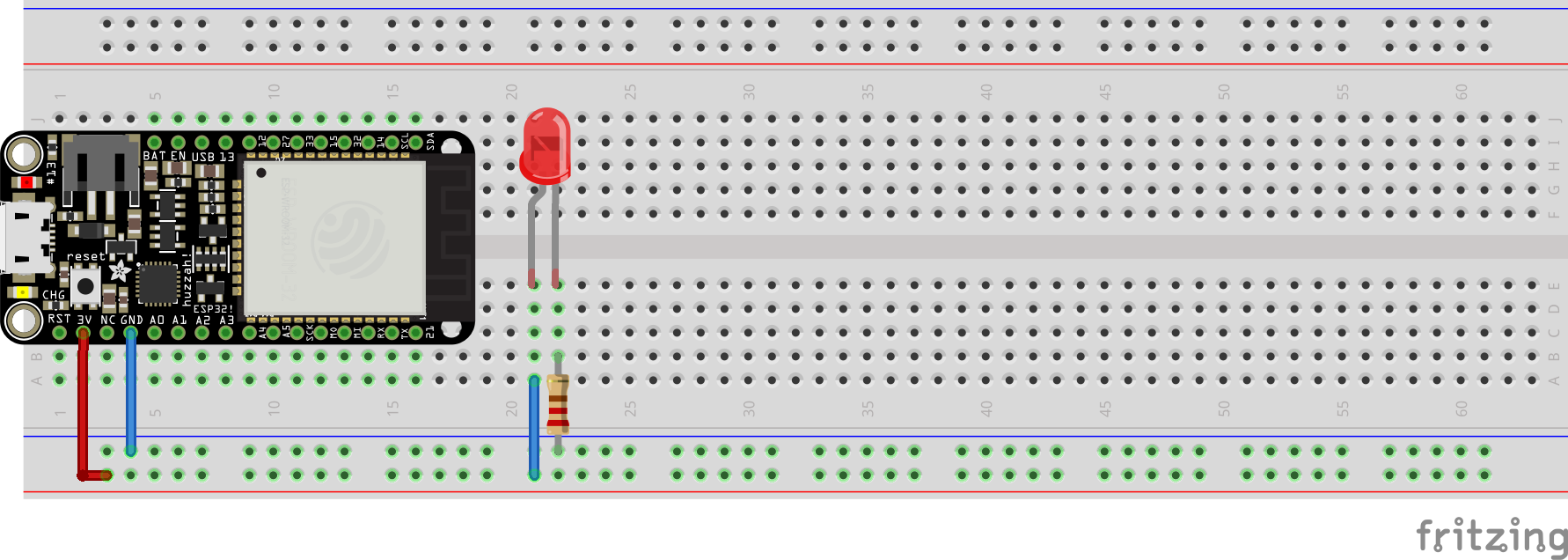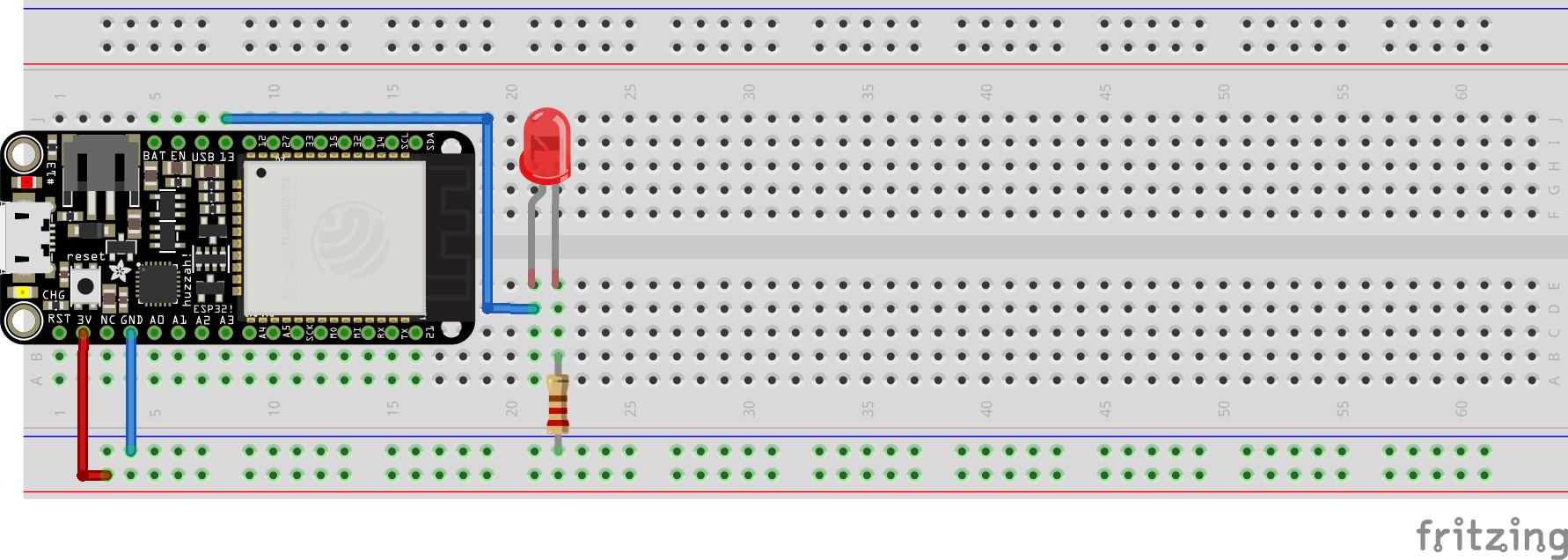basic LED circuit
There are two different ways to wire up a basic LED circuit to ESP32 3V and GND
Hookup Pattern (1)

- Connect ESP32
GNDto a blue bus on the side of your breadboard - Connect ESP32
3Vto a red bus on the side of your breadboard - Use a
220R(or similar) to run the3Vsignal to the inside of your breadboard - Connect the longer of the two LED pins to
220R, the shorter pin goes to and adjacent row - Connect the shorter LED pin to
GNDwith a wire
Hookup Pattern (2)

- Connect ESP32
GNDto a blue bus on the side of your breadboard - Connect ESP32
3Vto a red bus on the side of your breadboard - Use a wire to run the
3Vsignal to the inside of your breadboard - Connect the longer of the two LED pins to the wire, the shorter pin goes to and adjacent row
- Connect the shorter LED pin to
GNDwith a220R
blink.py (internal LED)
There is a built-in (internal) LED on the ESP32 that is tied to pin 13, the code below will cause it to rhythmically blink
'''
blink.py (internal led)
'''
from machine import Pin
from time import sleep
led = Pin(13, Pin.OUT)
while True:
led.value(1)
sleep(0.5)
led.value(0)
sleep(0.5)
blink.py (external LED)
With some simple rewiring one can connect the external LED from above to pin 13 so it blinks in time with the built-in (internal) LED
Hookup Pattern

- Connect ESP32
GNDto a blue bus on the side of your breadboard - Connect ESP32
3Vto a red bus on the side of your breadboard - Connect a wire from ESP32 pin 13 to the longer of the two LED pins, the shorter pin goes to and adjacent row
- Connect the shorter LED pin to
GNDwith a220R